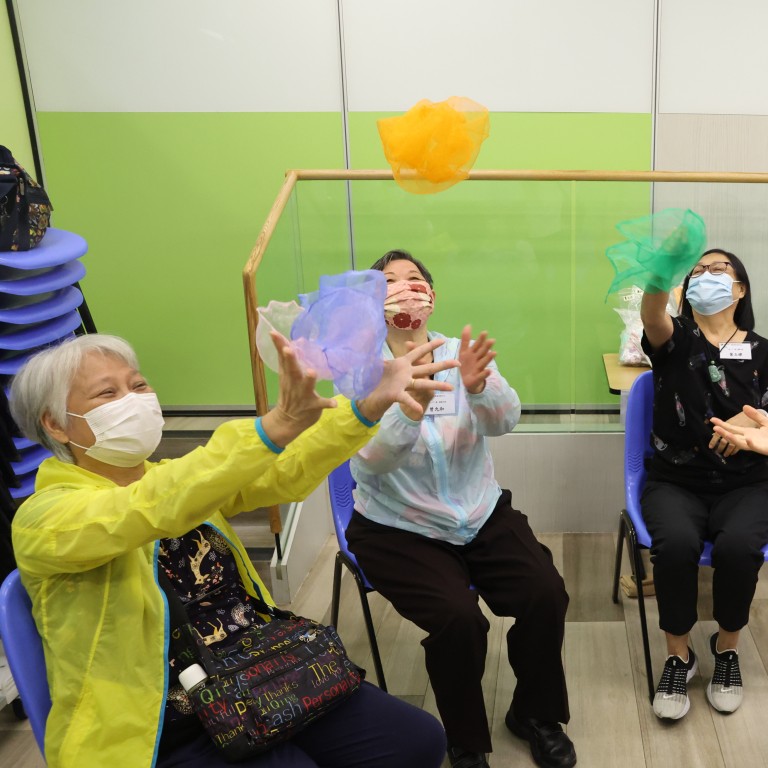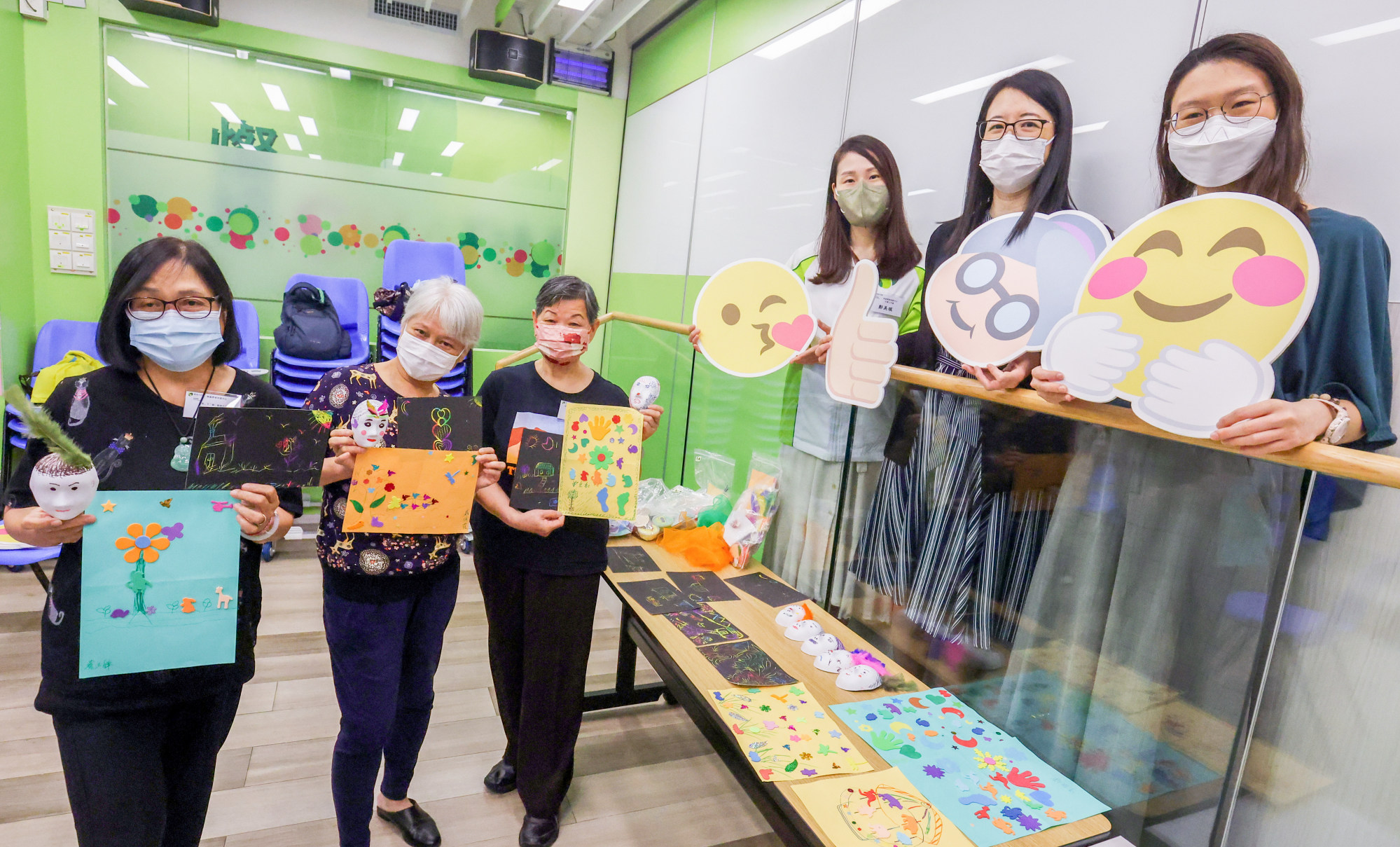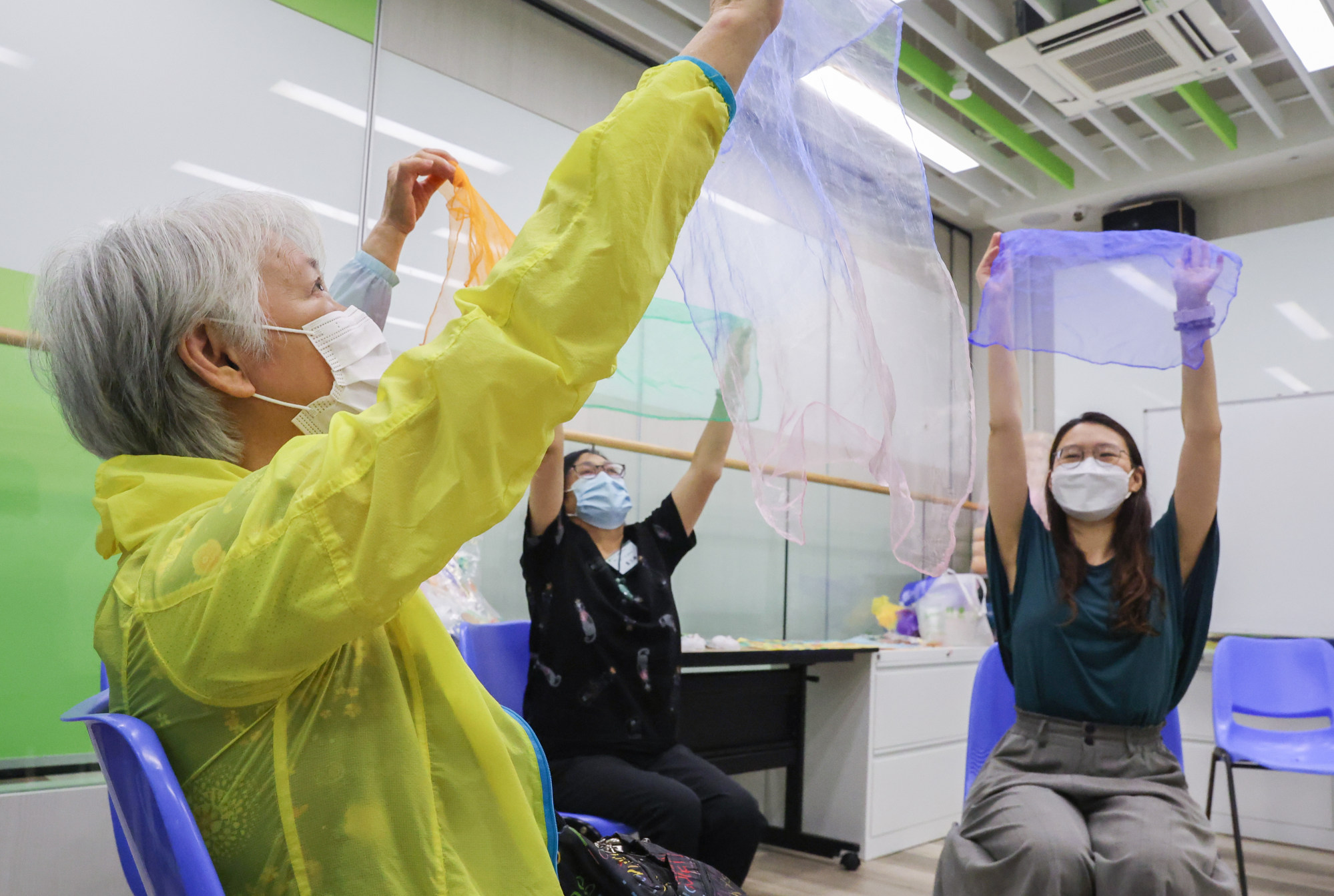
Coronavirus: elderly Hongkongers turn to expressive arts therapy to ease pandemic blues
- Expressive arts therapy has helped isolated elderly people suffering from long Covid open up and come out of shell, says therapist Janet Li Wai-chong
- Treatment often involves work in the visual arts, music, drama, dance and creative writing
The Covid-19 pandemic left elderly Hongkonger Yip Yuk-sim a shell of the woman she used to be.
Yip, who is often forgetful and always fatigued, remained physically drained three months after she caught the Omicron variant of the coronavirus in Hong Kong’s fifth wave of infections.
She became quiet and withdrawn until she found expressive arts therapy.
The 72-year-old said: “I thought I could die and dreaded being sent to Penny’s Bay for quarantine.”
But Yip added she was able to find some peace of mind through a mix of arts and crafts.

She explained: “I drew a house full of flowers and I felt very content and peaceful. My mind was not in a mess anymore.”
Arts therapist Janet Li Wai-chong, co-founder of the Hong Kong Expressive Arts Therapy Service Centre, said Yip’s experience was shared by other elderly people.
Li added: “Many of them don’t want to talk about their pain and emotions, as it could bring back memories of a time they don’t want to revisit. Some don’t talk because of the stigma of the disease.”
She said expressive arts therapy, a relatively new form of psychological treatment in the city, had helped many people, including elderly ones suffering from the effects of long Covid, to open up and come out of their shell.
Li added: “They no longer fear talking about their experiences as all of them there were Covid-19 patients.”
Covid fifth wave 21 times more deadly for unvaccinated elderly Hongkongers
The Hong Kong Expressive Arts Therapy Service Centre has helped close to 200 people, including Covid-19 patients and their caretakers, heal emotional wounds inflicted by the pandemic through the visual arts, music, drama, dance and creative writing.
The group has been running the therapy sessions from April to August with Chan Dang Social Services Foundation, Ho Cheung Shuk Yuen Charitable Foundation and Jing Yuan Charity Foundation.
Anny Hui Siu-yin, the director of the Aberdeen Kai-fong Welfare Association Services Centre, which has hosted some of the therapy sessions, said she had seen improvements among participants.
She added: “During Covid-19, our services were disrupted … and some carers found care-taking to be like a cage fight during that time.
“While traditional therapy may not be for everyone … this multifaceted approach allows the elderly to express their emotions and speak about their inner needs and gives them a chance to develop their passions, such as singing, or arts and crafts.”
Law Pui-ha, 74, said she experienced a change in her mood after trying expressive arts therapy.
Law, a keen traveller before the pandemic, added the therapy took her mind off her troubles and let her imagine experiences beyond the borders of the city as she displayed some of her drawings.
She said: “This is a boat that can take you to the most relaxed place with birds chirping on the trees. It was me longing for the day without Covid-19 when everyone can go out and have fun.”

She also made a mask using simple tools and materials in another session.
Law said: “The mouth here is smiling, but the eyes are open wide but sad.
“This is how I feel when I tell others I am happy, but it actually belies the sadness I feel within.”
Li explained the key to the treatment was not just debriefing after the activities, but also the activity itself which was a “process of healing and reconciliation”.
Activities can be simple such as waving the arms and legs as part of physical movement exercises, but Li told attendees to imagine themselves in the countryside or kayaking.
She said: “I don’t say things like ‘the artwork looks so beautiful’ as that also involves judging them. But I would encourage them to focus on and face up to their own feelings, and start mending them.”
Li said it was important for elderly people living alone or others suffering as a result of the pandemic to take care of themselves.
She advised people: “Take some deep breaths or play a favourite song for yourself … it’s not about a specific method but finding a way that suits you best.”
